From the Great Lakes State, Wolverine State, and The Mitten to Motor City and Motown, the state of Michigan and the city of Detroit have a plethora of nicknames. However, there is one that I had never heard of before. During World War II, Detroit was called the Arsenal of Democracy. Once you really think about the name, it makes perfect sense.
Michigan sent many brave soldiers to fight in the war, so many in fact that I could write an article every day for a year and not even touch on all the contributions they made, but, I digress. On the home front, Michigan became one of the most important states in the war effort.
Detroit Stops Making Cars
The automobile industry stopped producing consumer cars and switched to tanks and bombers. The unemployment rate nearly vanished and per capita income of Michigan residents increased 115 percent. Michigan received $21 billion, or 10%, of the $200 billion of federal war contracts given out during the war. Only the state of New York received more. Of that money coming to Michigan, more than half, $13 billion, was given to Detroit-area companies.
Michigan companies produced 4 million engines and 200,000 mobile units during the war. With only 2 percent of the U.S. population, Detroit made 10 percent of the material for the war. That’s how it earned the title of Arsenal of Democracy. The term was first used by President Franklin D. Roosevelt during one of his Fireside Chats radio broadcasts. He called on American cities to step up and produce war materials. Detroit companies answered the call in a major way, especially the already booming automobile industry.
Companies that had been pumping out luxury vehicles stopped producing for civilians and immediately transitioned into the production of weapons and vehicles for war. From large auto factories to small tool and die shops, from pharmaceutical manufacturers and boat builders, they began quickly producing jeeps, M3 and M4 tanks, bombers and airplane assemblies, artillery guns, ammunition, helmets, drugs, electronics, and countless miscellaneous parts and pieces.
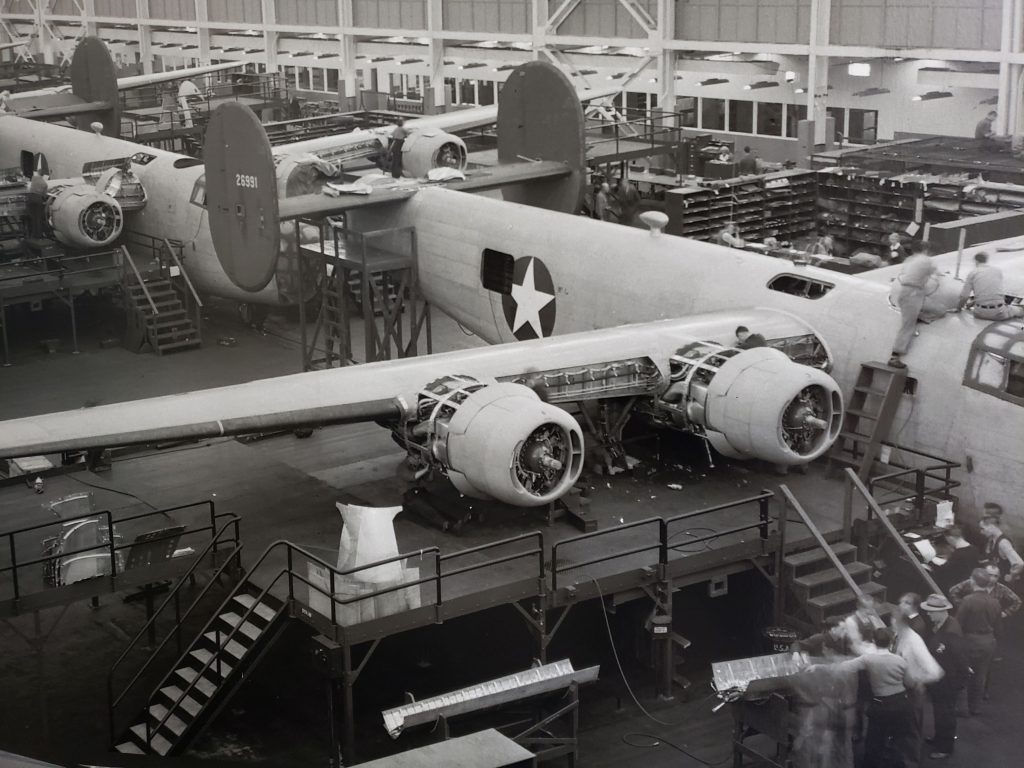
Bombers at Ford’s Willow Run plant.
Production in the Arsenal of Democracy
Ninety-one percent of all Army helmets were stamped in Detroit. Chrysler’s Detroit Arsenal Tank plant in Warren created half the tanks made in the United States. By the summer of 1944, Ford’s Willow Run plant completed one B-24 Liberator bomber every hour. I find that amazing! General Motors was responsible for the greatest percentage of war material during the period.
If it ran on wheels, Detroit industrialists manufactured it. Believe it or not, the landmark Guardian Building was transformed into an annex of the Pentagon due to the business. Many of the city’s corporate officers became high-ranking Army officers in order to skirt bureaucratic red tape. Detroit-based firms, with facilities across the country, produced 25 percent of everything used by our allies.
The Workforce Changes
The social landscape of the city changed as well during the war. Within the first year and a half following the attack on Pearl Harbor, 350,000 workers from the American south and elsewhere moved to Detroit to join in the war effort. As was the case across the country, women were hired as factory laborers, shifting norms and creating the folk hero Rosie the Riveter. African American workers were employed in greater numbers as well. About 200,000 Detroiters joined the military, and over 700,000 worked to produce the items necessary for an Allied victory. It was a true team victory.
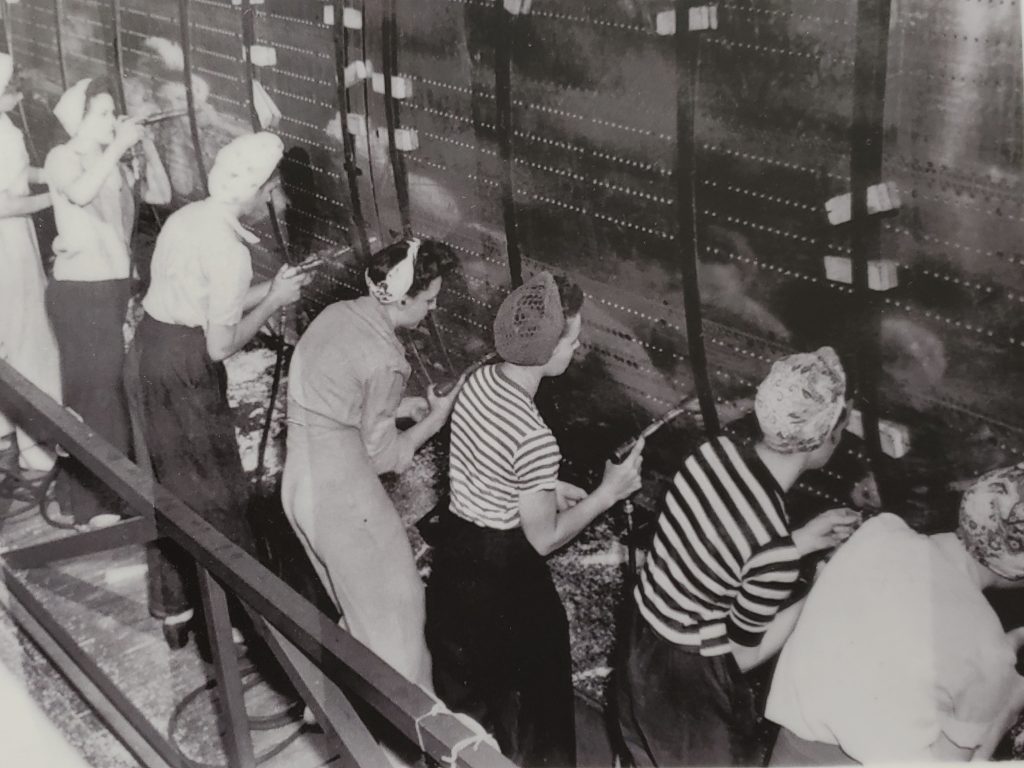
Women helping to build planes inspire poster and become known as Rosie the Riveters.
Impact of Population Increase on Detroit
Unfortunately, this sudden influx of newcomers strained Detroit’s housing situation. There were limited living spaces and among those that could be found, they were often cramped. Despite having jobs and earning a paycheck, food was scarce and the rationing of food and other resources across the nation forced all Americans to make do with less. Many families and neighborhoods would have community gardens to supplement the rations. These would later be known as “victory gardens.”
The logistics needed also had an impact on Michigan, especially Detroit. In order to take care of both people and war shipments, some of the city’s earliest freeways, such as the Davison Freeway and the Detroit Industrial Freeway, which is now I-94 between Detroit and Ypsilanti, were constructed to offer quicker access between the city and factories that were increasingly being built beyond the city limits in suburban farmlands. We can see the effects of this even today.
From producing the war supplies needed in the 1940s to the ventilators, vaccines, and protection equipment of our modern era, Michigan always comes through to contribute to our nation when she is in need. Detroit clearly earned the nickname of Arsenal of Democracy, yet it remains one of many monikers our region has worn over time. There’s also Pure Michigan, The Mitten State, Water Winter Wonderland, Hockeytown, Tiger Town, and many more. I still find that the Pure Michigan nickname is my favorite! What is yours?

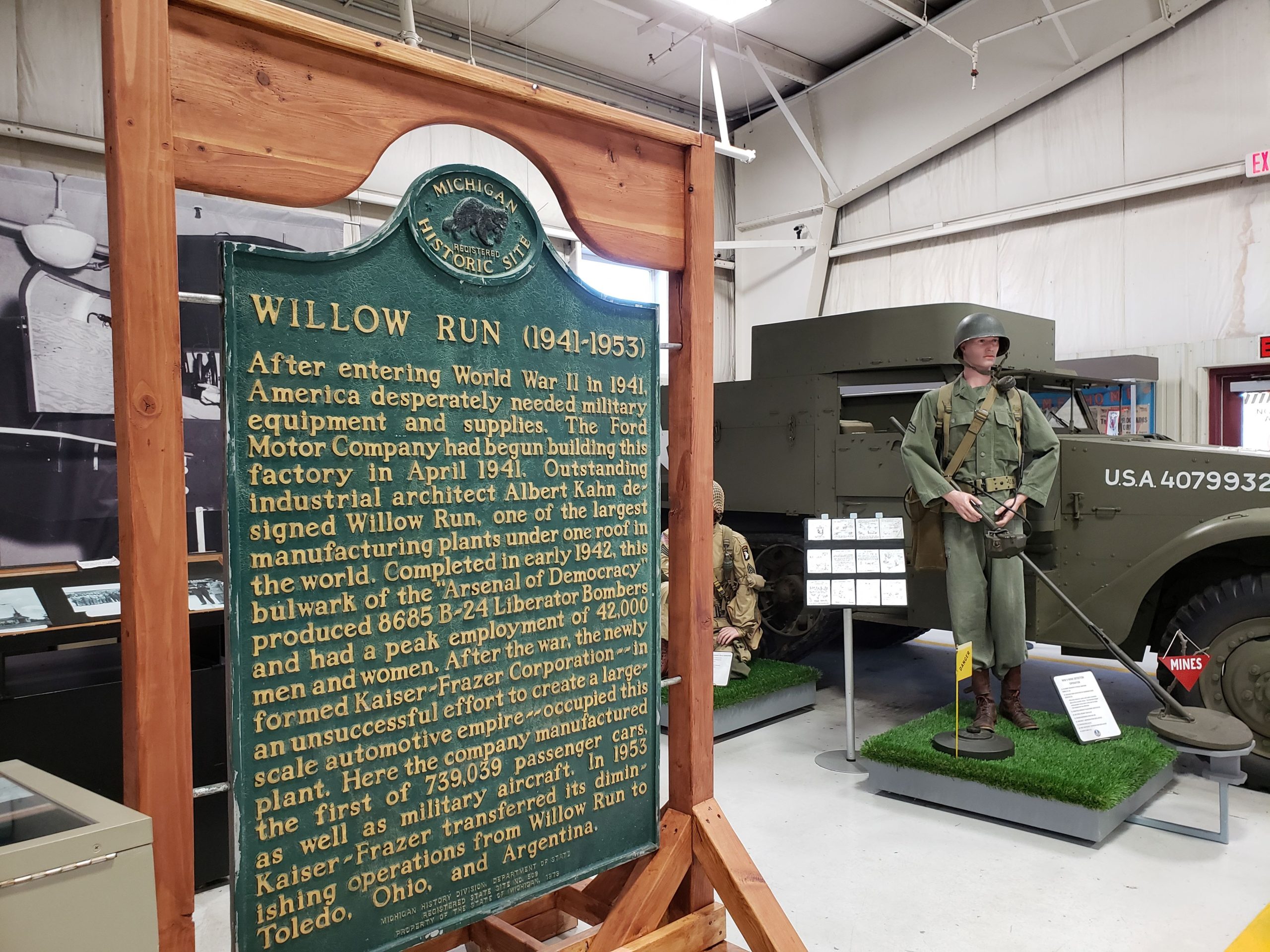
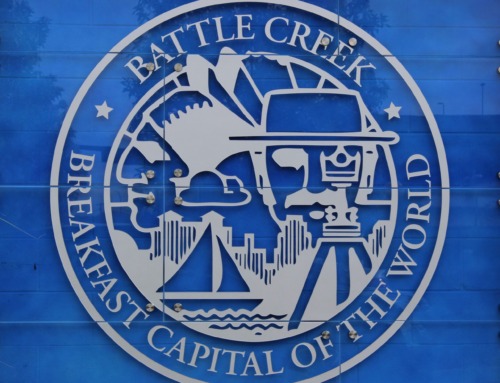
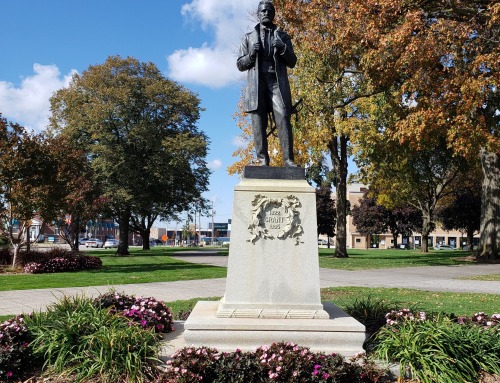
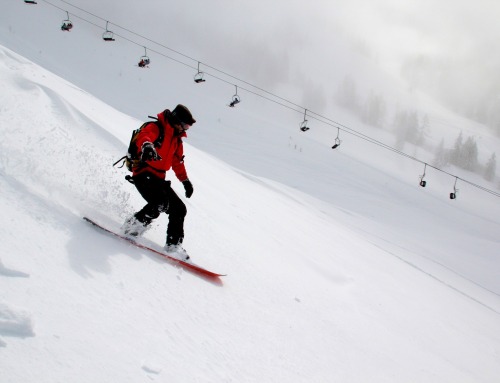


Leave A Comment
You must be logged in to post a comment.